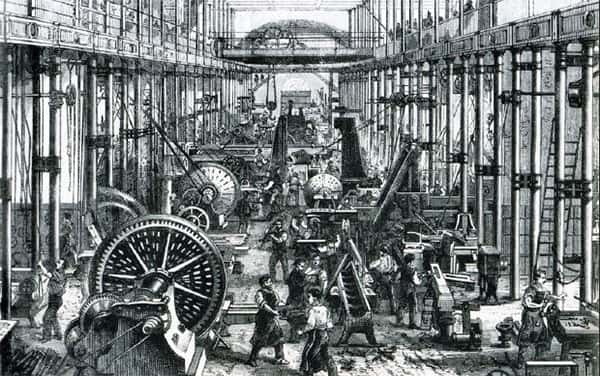Within the logic of capitalist accumulation, science and technology, which can provide more leisure time for workers to devote themselves and their families, to rest, recreation, and study, in short, in fact, are being configured as increasingly elaborate tools of exploration.
Thiago Lourenco | Famous teacher and teacher
sao paulo – Much of the development and mathematicalization of these theories took place in the Industrial Revolution, which began in the eighteenth century in England. Steam machines needed to be explained in order to improve their performance with the aim of maximizing profit for factory owners. On this page of history a physical area called thermodynamics was born.
This area operates with a concept energy This has long been a mystery – from Aristotle to Stephen Hawking – and what has been noted is that this idea is associated with Transformation, manifested in various ways, such as movement, spatial configuration, heat, and others. At all times we are surrounded by phenomena that are constantly changing, in location, condition, physical properties, etc.
Over time, people like Galileo, Descartes, and Leibniz realized that the best way to understand this dynamic is to take a closer look at what remains. continuousjust as Einstein did when studying the relative in order to understand the absolute.
From the maturation of these reflections, along with a better understanding of other phenomena, such as chemical reactions, for example, we have come to what is now understood as conservation laws which is the basis of the natural sciences.
Science as a tool for exploration
In parallel with the beginning of the use of machines in factories and the development of English industry, the process of expansion of European capitalism through the colonization of other peoples took place.
Looking in particular at Latin America, we remember the unprecedented exploitation of its riches, the devastation of its lands and the compulsory labor of its indigenous peoples. It is useful to quote an excerpt from The Open Veins of Latin America by Eduardo Galeano: “The capital accumulated in the triangular trade—manufactures, slaves, and sugar—made possible the invention of the steam engine.”Referring to the commercial relations between Europe and Africa and their colonies in America, the main element of which was the slave trade.
That is, the development of certain countries, those in the heart of world capitalism, depends on the backwardness of other countries, those on the periphery, as Galeano himself said.
It was the riches extracted from the colonies by fire and blood and the enslavement of millions of human beings that allowed investment in factories in England, and greatly encouraged studies and theoretical development of the physical concepts of work, energy, and conservation. .
Scientific production is not neutral, it does not hover over the contradictions of society, as if it has nothing to do with it. Research is facilitated, or not, by the interests of the dominant classes. If there is investment and incentives to develop and consolidate a particular field of knowledge, it is because it will benefit those in power.
Industry development is the main goal Reduce the use of labor force In factories, as few persons having some technical knowledge suffice to control the machines, in order to produce the same quantity of goods with less labor utilization, will result in an increase in the rate of profit of the capitalists.
On the one hand, for the working class this represents the disappearance of thousands of jobs, and thus the disappearance of misery.
Using science to liberate the working class
There may also be a discussion of the independence of science, but at least its development moves in directions conditioned, mainly, by the interests of the dominant classes. Likewise, it affects the way we understand and act in the world. We should not be so naïve as to give scientific production a neutral position, let alone support the idea of a technocratic society.
It is, therefore, necessary that production, in all its dimensions, be under the supervision of the working class, so that our interests are ahead of the profits of the employers, and that therefore technological and scientific progress represent, in fact, improvements in living conditions. For all people.

“Wannabe internet buff. Future teen idol. Hardcore zombie guru. Gamer. Avid creator. Entrepreneur. Bacon ninja.”

